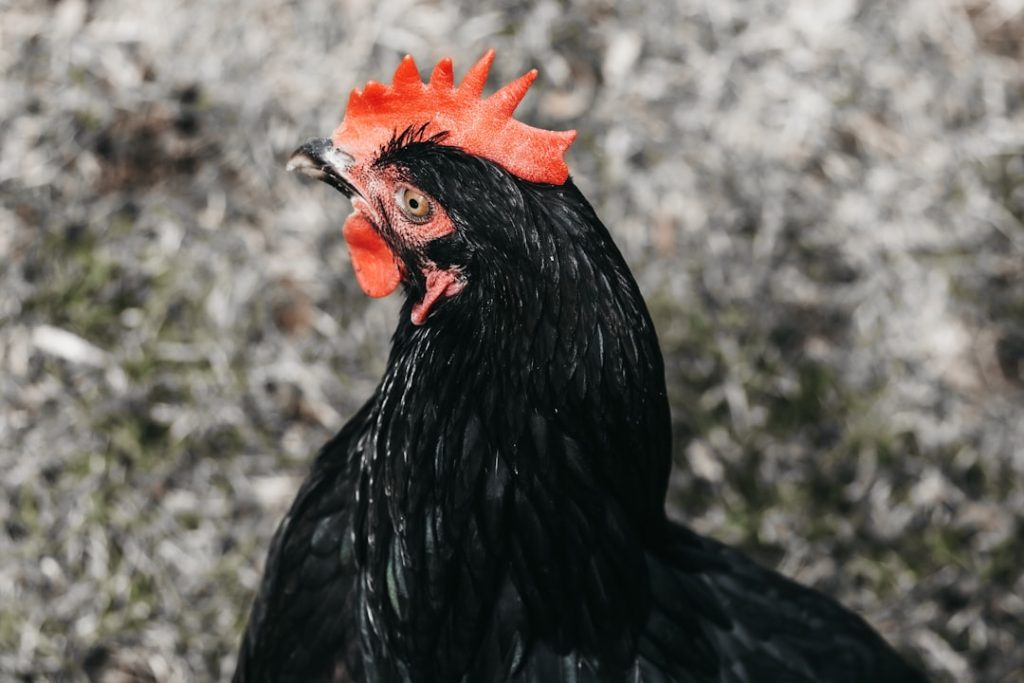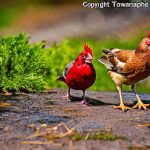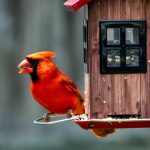Dogs are inherently inquisitive and exploratory animals, often exhibiting a tendency to attempt escape from their confined spaces. This behavior can be attributed to various factors, including:
1. Boredom
2. Loneliness
3. Fear
4. Desire for exploration
5. Strong prey drive
Some dogs may be particularly motivated to chase small animals such as chickens or other livestock. Understanding the underlying causes of a dog’s escape attempts is essential for effectively addressing and preventing this behavior. Dogs that lack proper socialization or training may be more prone to escape attempts. These animals may not comprehend boundaries or may struggle with being left alone. It is crucial for dog owners to identify early signs of escape behavior and take appropriate measures to mitigate potential risks to the dog and other animals. Addressing escape behavior often involves a combination of environmental management, training, and addressing the dog’s physical and mental needs. Regular exercise, mental stimulation, and positive reinforcement training can help reduce a dog’s desire to escape and improve their overall well-being.
Table of Contents
- 1 Securing the yard to prevent escapes
- 2 Training and socializing dogs to prevent predatory behavior
- 3 Protecting chickens from dog attacks
- 4 Legal implications of dogs killing livestock
- 5 Seeking help from professional trainers and behaviorists
- 6 Rehoming or rehoming dogs with a history of escaping and killing livestock
- 7 FAQs
Key Takeaways
- Dogs may escape due to boredom, fear, or the desire to chase prey
- Secure the yard with proper fencing and gates to prevent escapes
- Training and socializing dogs can help prevent predatory behavior towards livestock
- Protect chickens by keeping them in a secure coop and supervising interactions with dogs
- Understand the legal implications of dogs killing livestock and seek professional help if needed
- Consider rehoming dogs with a history of escaping and killing livestock
- Seek help from professional trainers and behaviorists to address escaping and predatory behavior in dogs
Securing the yard to prevent escapes
Securing Your Outdoor Space to Prevent Dog Escapes
Secure Fencing
One of the most effective ways to prevent a dog from escaping is to secure the yard or outdoor space where the dog spends time. This can be done by installing a secure fence that is tall enough to prevent the dog from jumping over it and buried deep enough to prevent digging underneath. Additionally, it’s important to regularly inspect the fence for any weak spots or gaps that the dog could exploit.
Outdoor Kennels and Runs
Another option is to use an outdoor kennel or run that provides a safe and secure space for the dog to spend time outside without the risk of escaping. It’s important to ensure that the kennel is properly constructed and escape-proof, with a secure latch and no gaps or openings that the dog could slip through.
Preventing Boredom and Restlessness
In addition to physical barriers, it’s important to provide mental and physical stimulation for the dog to prevent boredom and restlessness, which can lead to escaping behavior. This can include regular exercise, interactive toys, and training activities to keep the dog engaged and content in their outdoor space.
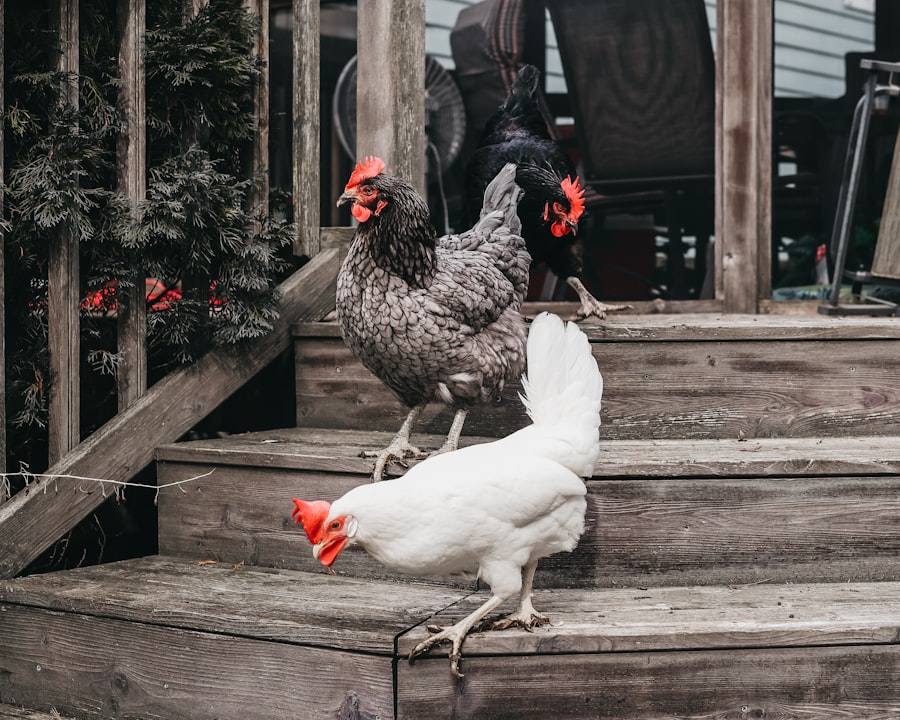
Proper training and socialization are essential in preventing predatory behavior in dogs. Training can help teach a dog to respond to commands and boundaries, while socialization can help them learn how to interact with other animals in a safe and appropriate manner. Training should begin early in a dog’s life and should focus on teaching basic obedience commands, such as “sit,” “stay,” and “come,” as well as impulse control and recall.
These commands can be crucial in preventing a dog from chasing after small animals or livestock when they are off-leash. Socialization is also important in helping a dog learn how to behave around other animals. This can include exposing the dog to different environments, people, and animals in a controlled and positive way.
It’s important for dog owners to supervise their dog’s interactions with other animals and provide guidance on appropriate behavior. In some cases, professional training or behavior modification may be necessary to address predatory behavior in dogs. Working with a certified dog trainer or behaviorist can help identify the underlying causes of the behavior and develop a plan to address it effectively.
Protecting chickens from dog attacks
Protecting chickens from dog attacks requires a combination of preventative measures and supervision. One of the most effective ways to protect chickens is by providing a secure coop or enclosure that is predator-proof. This can include using hardware cloth or welded wire fencing with small openings to prevent dogs from gaining access to the chickens.
Additionally, it’s important to supervise any interactions between dogs and chickens, especially if the dog has shown predatory behavior in the past. Keeping the dog on a leash or in a secure area when they are around the chickens can help prevent any potential attacks. Training can also play a crucial role in protecting chickens from dog attacks.
Teaching a dog to ignore or leave chickens alone through positive reinforcement training can help prevent any predatory behavior towards them. It’s important for dog owners to be consistent in their training efforts and provide plenty of positive reinforcement for desired behaviors.
Legal implications of dogs killing livestock
In many areas, there are legal implications for dogs that kill livestock. Dog owners can be held responsible for any damages caused by their pets, including livestock attacks. This can include financial compensation for the loss of livestock as well as potential legal consequences for the owner.
It’s important for dog owners to be aware of local laws and regulations regarding dogs and livestock, as well as any potential liability they may face if their dog attacks or kills livestock. In some cases, dogs that have attacked or killed livestock may be classified as dangerous animals, which can result in additional restrictions or consequences for the owner. In addition to legal implications, there may also be community or neighborhood repercussions for dogs that attack or kill livestock.
This can include strained relationships with neighbors, damage to the owner’s reputation, and potential restrictions on owning animals in the future.
Seeking help from professional trainers and behaviorists
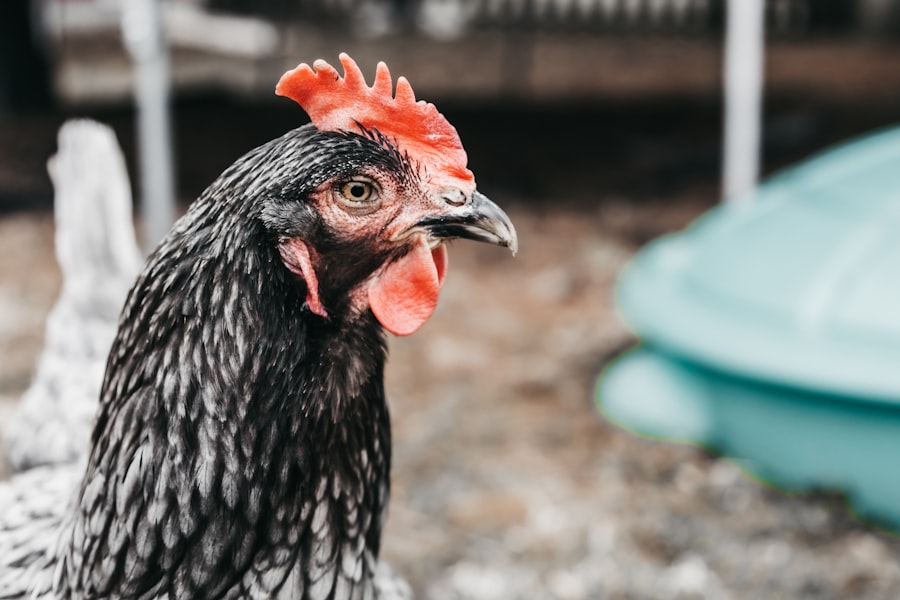
Identifying the Underlying Causes
If a dog has a history of escaping and killing livestock, it’s essential for the owner to seek help from professional trainers and behaviorists. Working with a certified dog trainer or behaviorist can help identify the underlying causes of the behavior and develop a plan to address it effectively.
Developing a Customized Plan
Professional trainers and behaviorists can provide guidance on training techniques, behavior modification, and management strategies to prevent future escapes and predatory behavior. They can also offer support and resources for dog owners who are struggling with these issues.
Ensuring Safety for All
In some cases, professional intervention may be necessary to ensure the safety of both the dog and other animals. A behaviorist can help assess the dog’s behavior and develop a customized plan to address any underlying issues that may be contributing to their escaping and predatory behavior.
Rehoming or rehoming dogs with a history of escaping and killing livestock
In some cases, rehoming a dog with a history of escaping and killing livestock may be necessary for the safety of both the dog and other animals. Rehoming should be considered as a last resort after all other options have been exhausted, including professional training and behavior modification. If rehoming is necessary, it’s important for the owner to work with a reputable rescue organization or shelter that has experience with working with dogs with behavioral issues.
This can help ensure that the dog is placed in an appropriate environment where their needs can be met and where they will not pose a risk to other animals. Rehoming a dog with a history of escaping and killing livestock should be done with full disclosure of their behavioral history. Potential adopters should be made aware of the dog’s past behavior so that they can make an informed decision about whether they are equipped to handle the dog’s needs.
In some cases, euthanasia may be considered as a last resort for dogs with severe behavioral issues that pose a risk to other animals. This decision should not be taken lightly and should only be considered after all other options have been thoroughly explored. In conclusion, understanding the behavior of escaping dogs, securing the yard, training and socializing dogs, protecting chickens from dog attacks, legal implications of dogs killing livestock, seeking help from professional trainers and behaviorists, and rehoming dogs with a history of escaping and killing livestock are all important aspects of responsible pet ownership.
It’s crucial for dog owners to be proactive in addressing any escaping or predatory behavior in their pets and seek help when needed to ensure the safety of both their dogs and other animals.
If you’re struggling with keeping your chickens safe from escaping dogs, you may want to consider upgrading your chicken coop. According to Poultry Wizard, the size of the coop is crucial in keeping your chickens safe from predators. They offer tips on how big a coop needs to be for a chicken, as well as options for farmhouse chicken coops and the chicken coop country diner. Making sure your chickens have a secure and spacious coop could help prevent future attacks from escaping dogs.
FAQs
What are some common reasons why dogs escape from yards?
Some common reasons why dogs escape from yards include boredom, lack of exercise, separation anxiety, and the presence of other animals or distractions outside the yard.
How can I prevent my dog from escaping the yard?
To prevent your dog from escaping the yard, you can ensure that the yard is securely fenced, provide enough mental and physical stimulation for your dog, and address any underlying behavioral issues that may be causing the escape attempts.
What should I do if my dog keeps escaping and killing chickens?
If your dog keeps escaping and killing chickens, it is important to address the behavior immediately. You can seek the help of a professional dog trainer or behaviorist to address the underlying issues and prevent further incidents.
Are there any legal implications if my dog keeps escaping and causing harm to other animals?
In many areas, there are laws and regulations regarding pet ownership and responsibility. If your dog keeps escaping and causing harm to other animals, you may be held liable for the damages and could face legal consequences. It is important to address the behavior and take necessary precautions to prevent further incidents.

Meet Walter, the feathered-friend fanatic of Florida! Nestled in the sunshine state, Walter struts through life with his feathered companions, clucking his way to happiness. With a coop that’s fancier than a five-star hotel, he’s the Don Juan of the chicken world. When he’s not teaching his hens to do the cha-cha, you’ll find him in a heated debate with his prized rooster, Sir Clucks-a-Lot. Walter’s poultry passion is no yolk; he’s the sunny-side-up guy you never knew you needed in your flock of friends!


Meet Walter, the feathered-friend fanatic of Florida! Nestled in the sunshine state, Walter struts through life with his feathered companions, clucking his way to happiness. With a coop that’s fancier than a five-star hotel, he’s the Don Juan of the chicken world. When he’s not teaching his hens to do the cha-cha, you’ll find him in a heated debate with his prized rooster, Sir Clucks-a-Lot. Walter’s poultry passion is no yolk; he’s the sunny-side-up guy you never knew you needed in your flock of friends!

